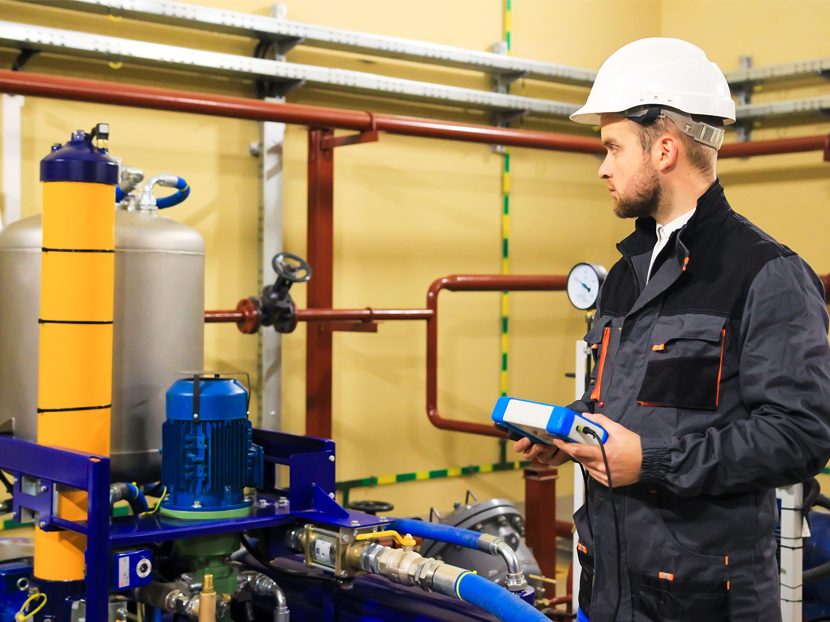Recruiting the Next Generation of Code Officials
Q&A with the International Association of Plumbing and Mechanical Officials

On the heels of back-to-school season, Plumbing Engineer found it relevant to address the recruiting conversation in its August issue. Just as professions are often repeated at career days in mainstream spaces, it is easy to highlight some occupations over others in the trades.
The International Association of Plumbing and Mechanical Officials (IAPMO), however, is up to the challenge of promoting all industry careers. In the following Q&A, Tony Marcello, vice president of Education and Training at IAPMO, sheds light on the status of recruiting code officials and other professionals that fall under the association’s line of work.
PE: What statistics has IAPMO uncovered as it relates to recruiting code officials and related careers?
IAPMO: Although there are well over a million workers in the pipe and HVAC trades, there are only about 10,000 to 15,000 plumbing and mechanical inspectors nationwide, according to past data from the U.S. Bureau of Labor Statistics.
PE: What is the industry doing as it relates to changing those statistics by recruiting and keeping talent?
IAPMO: To my knowledge, the plumbing and HVACR industries do very little to recruit individuals from the trades or related fields to become inspectors. In my opinion, there are two primary things the industry needs to focus on to recruit people into the profession: career awareness and compensation.
When it comes to career awareness, I have had numerous conversations in which I have spoken to individuals in the pipe trades who had reached a point in their career where their bodies could no longer bear the daily grind of being in the field as an installer. In many cases, their doctors had even told them that they need to find another line of work. However, these individuals often comment, “I have worked my entire life in the trade. What else am I going to do?”
Like these individuals, many tradespeople have no idea of the other trades-related careers that are available to them. The industry needs to do a better job at local levels of educating workers about potential careers they can pursue once they can no longer work in the field due to age or the toll that the trade can take on the body.
As it relates to compensation, unless you are a senior inspector or CBO, your salary as an inspector will be considerably less than that of an active tradesman. It is a difficult adjustment to make for you and your family if you have to take a job that can pay you as much as $40,000 to $50,000 less per year because you can no longer work in the field. Although salaries for inspectors can vary in jurisdictions across the country, they are usually substantially less than full-time plumbers and HVACR installers make.
Jurisdictions have financial constraints and budgets they need to maintain that set these salary levels, but part of the issue is a lack of public understanding of the vital role that inspectors play in our communities. In the U.S., you do not see the levels of injury and loss of life from building system failures that you do in other parts of the world. This is the result of better-trained workers, adequate codes and standards, and the diligent efforts of inspectors tasked with guarding the public’s health and safety.
In a way, inspectors are like teachers. Despite the immense value they bring to society, they are not paid in accordance with that value. I have the luxury of working with and speaking with inspectors from across the country and I get to see, firsthand, the passion and dedication these professionals have for ensuring public safety.
PE: What has IAPMO done in the areas of talent recruiting and retention, and what have the results been?
IAPMO: The association does not recruit inspectors. It is the jurisdictions that hire inspectors and must find ways to fill open positions. However, IAPMO does provide training and professional certification as a way to support the inspector community by providing them the means to maintain various licenses and to help make themselves more marketable.
PE: What plans does IAPMO have for talent recruiting and retention, and what are the desired outcomes?
IAPMO: We will continue to work to develop new training programs and credentials aimed at better equipping inspectors to their jobs and keeping up with changing codes, technology and practices.
Learn more about IAPMO membership opportunities by visiting www.iapmomembership.org.





